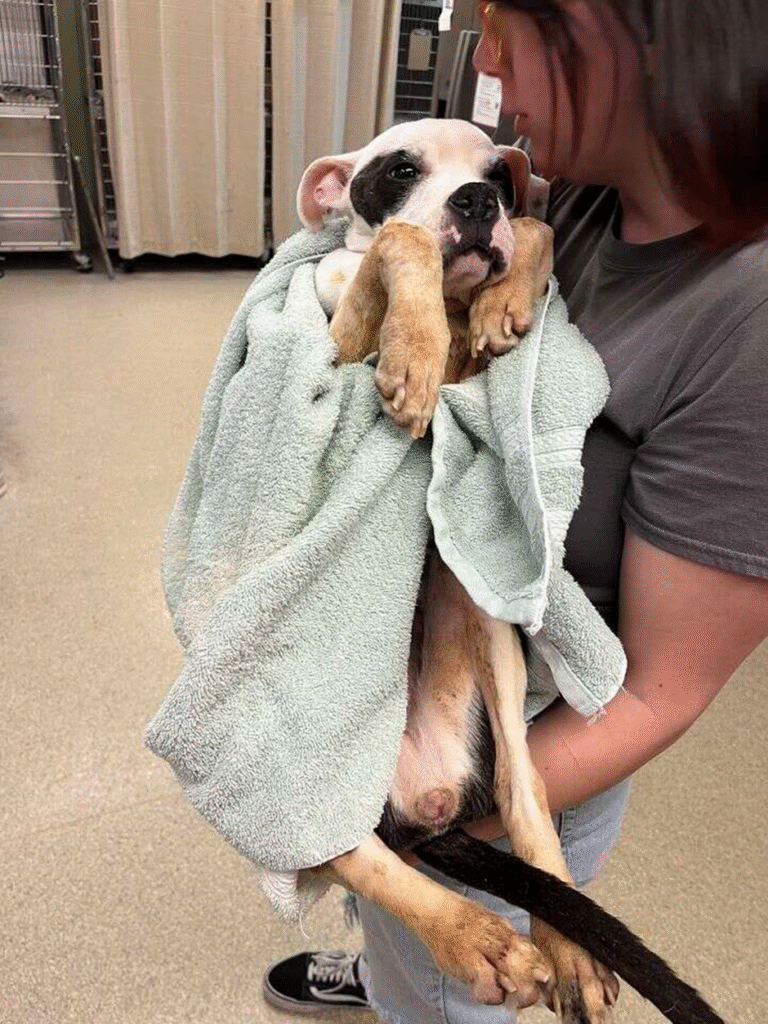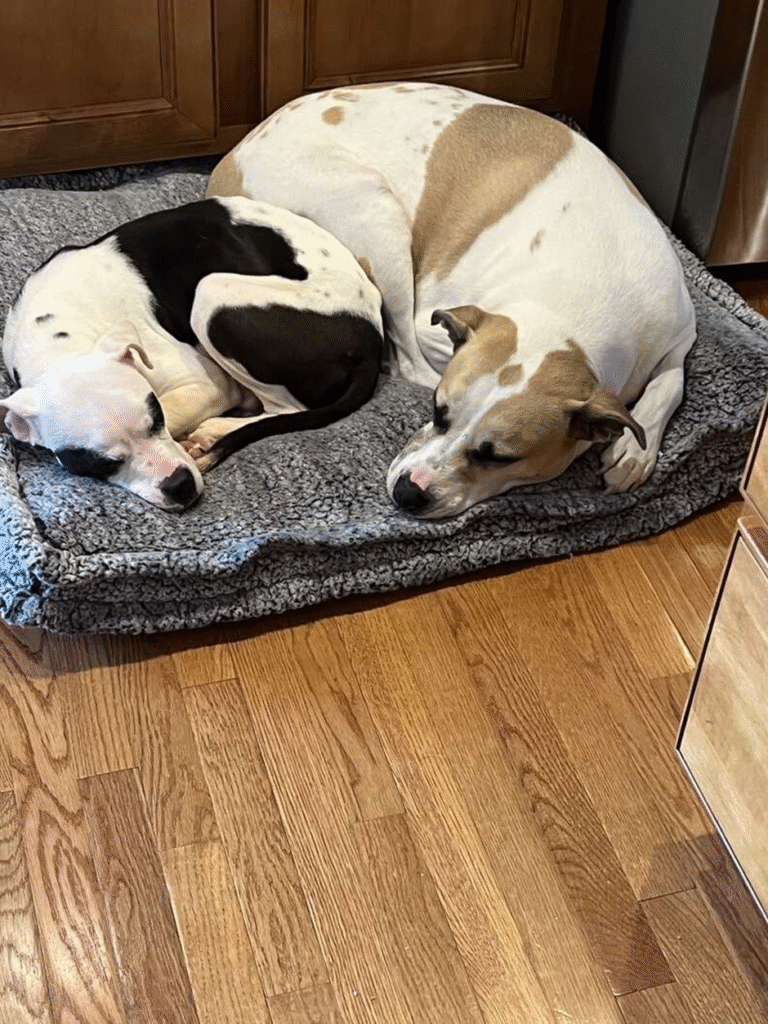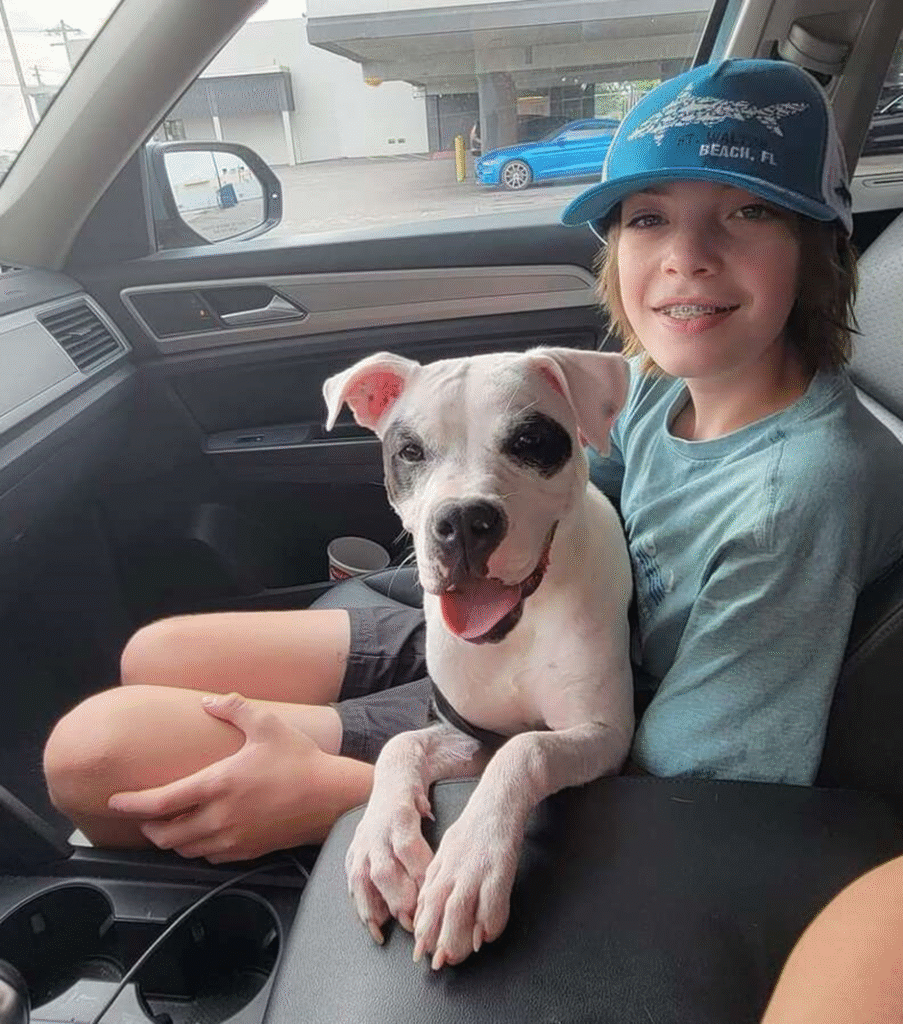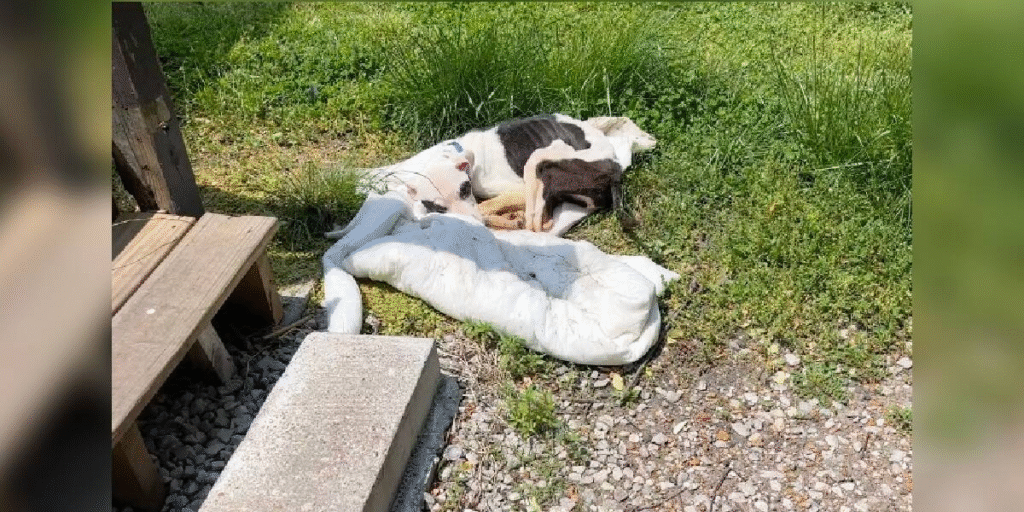
The air was still cold, biting with the sharp dampness of a predawn spring. Marcus walked the same path to his bus stop every morning, his eyes usually fixed on the concrete, his mind already mapping out the logistics of his workday. But this day, something broke the routine.
Tucked into the shadowy hollow beside the stop sign, Marcus saw a small, white, motionless bundle—a sight that shouldn’t be there. His first thought was trash, maybe a discarded shopping bag. His second thought, as his old blue-nosed pitbull, Rosie, strained gently at her leash, was chilling.
It was a dog.
A tiny, skeletal puppy lay shivering on a scatter of dry, brown autumn leaves, his fur the color of faded paper and clinging to a frame of fragile bones. He was tied to something with a thin, cheap rope, abandoned and utterly defeated. The image of the dog was heartbreaking—a study in neglect, his life force barely a flicker against the vastness of the forest floor.
Marcus felt a familiar, sickening punch of anger. He dropped Rosie’s leash—knowing she was the most gentle giant—and rushed forward, sinking to his knees in the cold leaf litter.

The Rescue and the Road to Life
The puppy was barely responsive. He was mostly white, with a striking black patch over one eye, a perfect tear-drop of shadow on his otherwise pale face. Marcus carefully scooped him up, bundling him into the warmth of his jacket. The dog was impossibly light, his weight a haunting testament to his starvation.
Work forgotten, Marcus sped to the nearest veterinary hospital. Rosie, having conducted a thorough, sad sniff of the abandoned site, sat patiently in the back seat, nudging the bundle of fur with her nose—a silent promise of warmth.
The medical team immediately went to work. They estimated the puppy was maybe four or five months old, but severely malnourished and dehydrated. They named him Bandit, after the dark mask over his eye.
The road to recovery was slow, measured in ounces of weight gained and hours of uninterrupted rest. Bandit was a fighter, but he needed more than food; he needed touch. He needed assurance that the pain was over. One of the veterinary assistants, a kind young woman, often held him, wrapped tightly in a towel, rocking him gently to ease the discomfort in his starved muscles. Even in the quiet, sterile environment of the clinic, Bandit leaned into the comfort, his tiny body folding against the towel and the human chest, his black eye patch giving him a look of solemn relief.

The New Boy
Weeks turned into months. Bandit gained weight, his fur grew thick and soft, and the skeletal frame was replaced by the sturdy muscle of a healthy, happy puppy. He was ready for a forever home.
Marcus, who already had Rosie, had wrestled with the decision. But every time he visited Bandit, the puppy would greet him with a frantic, joyful dance, never forgetting the man who stopped on his way to work.
The day Marcus brought Bandit home, it was clear the bus stop tragedy was now just a memory. Bandit bounded into the car, his tail a white blur of excitement. He settled immediately into the passenger seat, his paws resting on the center console, ready for the ride home.
Marcus’s son, Liam, buckled in beside the happy dog, a wide, bracket-filled grin on his face, his blue baseball cap tilted slightly. He wrapped an arm around Bandit, holding him close. Bandit, a dog who had once known only the cold concrete and the crushing weight of abandonment, returned the affection with a powerful, tongue-lolling smile.
That night, the true healing began. Tucked onto a soft, grey orthopedic dog bed in the warmth of the living room, Bandit curled up tightly against his new sister, Rosie, the older dog who had first smelled his suffering (Image 4, the final image, where two dogs are curled up). They were a pair of perfect crescents, two rescue dogs who understood the value of shared warmth and safety. Bandit, the dog found tied and starving at a bus stop, was finally and unequivocally home, his life transformed by a single act of kindness on a cold morning.



